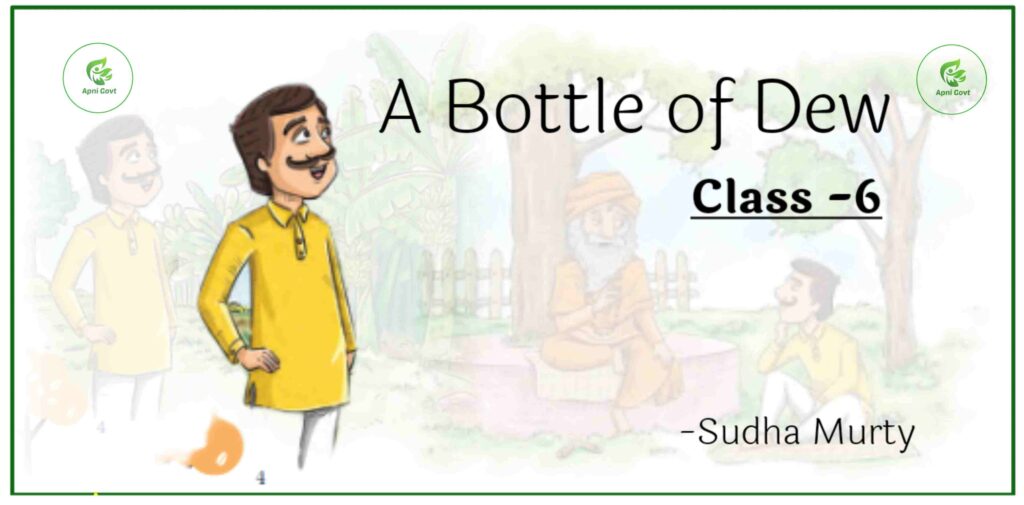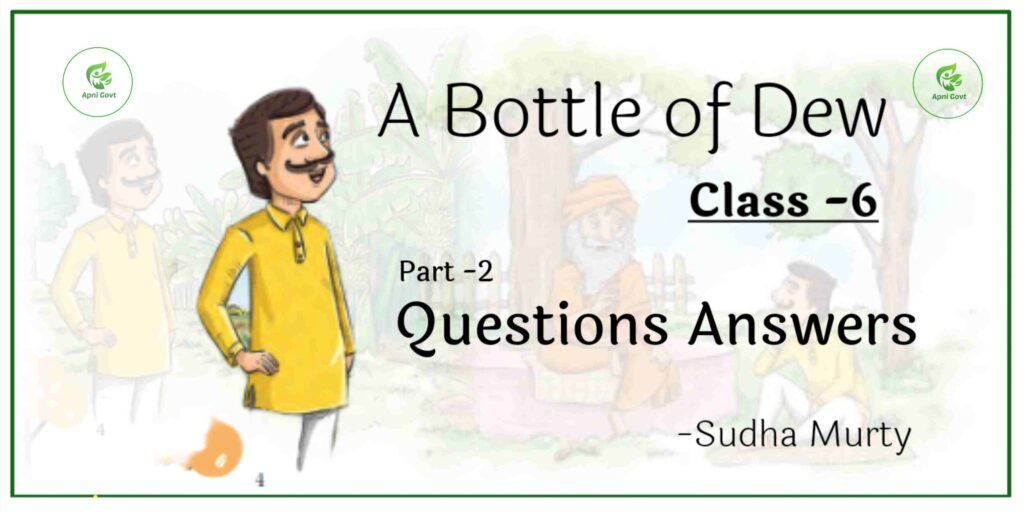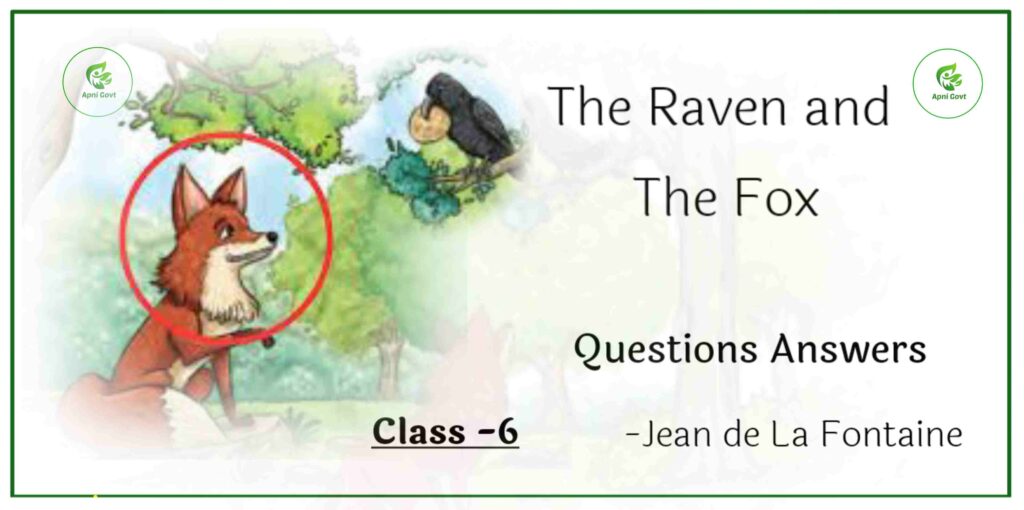Unit 2 – Friendship Lesson 1: The Unlikely Best Friends
Gajaraj, the elephant, lived in the best booth of the royal stables. The king was fond of Gajaraj, and he had ordered that the elephant should be well looked after.
| Word / Phrase | हिंदी उच्चारण | अर्थ |
|---|---|---|
| booth (of stables) | बूथ | अलग खंड/घेरा (अस्तबल का हिस्सा) |
| royal stables | रॉयल स्टेबल्स | शाही अस्तबल |
| fond of | फ़ॉन्ड ऑफ | बहुत पसंद/स्नेह होना |
| ordered | ऑर्डर्ड | आदेश दिया |
| looked after | लुक्ड आफ्टर | देखभाल की |
In spite of royal comforts, Gajaraj was sad because he had no friends. The mahout, or elephant trainer, was the only one he ever interacted with. The mahout was a kind man who served Gajaraj food, and gave him a bath in the elephant pond daily. He was a good caretaker, but not a friend.
| Word / Phrase | हिंदी उच्चारण | अर्थ |
|---|---|---|
| in spite of | इन स्पाइट ऑफ | के बावजूद |
| mahout | महावत | हाथी सँभालने/प्रशिक्षित करने वाला |
| elephant trainer | एलीफ़ैंट ट्रेनर | हाथी का प्रशिक्षक |
| interacted (with) | इंटरैक्टेड (विद) | संपर्क/बातचीत करना |
| pond | पॉन्ड | तालाब |
| caretaker | केयरटेकर | देखभाल करने वाला |
| comforts | कम्फ़र्ट्स | सुविधाएँ/आराम |
“I wish I had a friend I can play with,” thought Gajaraj. One late evening, a dog strayed into the stable. Gajaraj could see that the visitor was tired and hungry. He pushed some of the food he was munching towards the dog. The visitor wagged his tail, looked up at the elephant to convey his thanks, and then turned his full attention to the food in front of him. As soon as he finished eating, he fell asleep.
| Word / Phrase | हिंदी उच्चारण | अर्थ |
|---|---|---|
| strayed (into) | स्ट्रेड | भटक कर (अंदर) आ गया |
| visitor | विज़िटर | मेहमान/आगन्तुक |
| tired | टायर्ड | थका हुआ |
| hungry | हंग्री | भूखा |
| munching | मनचिंग | चबाते हुए खाना |
| wagged (his tail) | वैग्ड | पूँछ हिलाई |
| convey (thanks) | कन्वे | जताना/संदेश देना |
| fell asleep | फेल अस्लीप | सो गया |
The next morning, the mahout found the stray dog in the stable. He did not mind the dog. He also noticed that Gajaraj seemed to like the company. So, he threw some crumbs to the dog, which the animal accepted wagging his tail.
| Word / Phrase | हिंदी उच्चारण | अर्थ |
|---|---|---|
| did not mind | डिड नॉट माइन्ड | आपत्ति नहीं थी/ठीक लगा |
| seemed to | सीम्ड टू | लगता था कि |
| company | कम्पनी | साथ/संगति |
| crumbs | क्रम्ब्स | रोटी/खाने के छोटे टुकड़े |
| accepted | एक्सेप्टेड | स्वीकार किया |
| wagging (his tail) | वैगिंग | पूँछ हिलाते हुए |
When the elephant went out for a bath, the dog accompanied his friend. Plunging into the water, the elephant gave himself a shower using his long trunk, as the dog watched. The elephant took a trunkful of water and playfully splashed the water on his friend. The dog yelped for he hated taking showers. The mahout laughed.
| Word / Phrase | हिंदी उच्चारण | अर्थ |
|---|---|---|
| accompanied | अकम्पनीड | साथ गया/रहा |
| plunging | प्लंजिंग | छपाके से कूदना |
| shower (give himself) | शावर | नहाना/पानी डालना |
| trunk | ट्रंक | (हाथी की) सूँड |
| trunkful | ट्रंकफुल | सूँड भर पानी |
| playfully | प्लेफ़ुली | मस्ती से |
| splashed | स्प्लैश्ड | पानी उछाला |
| yelped | येल्प्ट | (कुत्ते की) तीखी चीख |
On their way home, the elephant picked up the dog with his trunk and placed him on his back. The dog was delighted to get a ride. A farmer passing by saw the dog. “Buntee,” he yelled. The dog ran to him. The farmer hugged the dog and told the mahout that he was looking for his dog ever since he disappeared from his house. He was glad he found him now. The mahout had no objection to the farmer taking the dog home. The farmer tossed a rope round the neck of the dog, saying, “Come Buntee, let’s go home.”
| Word / Phrase | हिंदी उच्चारण | अर्थ |
|---|---|---|
| delighted | डिलाइटेड | बहुत खुश |
| passing by | पासिंग बाय | रास्ते से गुजरते हुए |
| yelled | येल्ड | जोर से पुकारा |
| hugged | हग्ड | गले लगाया |
| disappeared | डिसअपीयर्ड | गायब हो गया |
| glad | ग्लैड | प्रसन्न/खुश |
| objection | ऑब्जेक्शन | आपत्ति |
| tossed a rope | टॉस्ट अ रोप | रस्सी डाल दी/फेंक दी |
Only when the farmer pulled the rope did the dog realise that he was being taken away from his friend. He yelped, the elephant winced, but neither the farmer nor the mahout noticed that the two friends were in tears. The next day at lunch time the mahout served Gajaraj his favourite food. When the mahout came back after finishing his other chores, he was surprised to see that the food had remained untouched.
| Word / Phrase | हिंदी उच्चारण | अर्थ |
|---|---|---|
| pulled the rope | पुल्ड द रोप | रस्सी खींची |
| realise | रियलाइज़ | अहसास होना/समझना |
| winced | विन्स्ट | दर्द से सिमट गया |
| neither…nor | नीदर…नॉर | न यह, न वह—दोनों नहीं |
| chores | चोर्स | रोज़मर्रा के काम |
| untouched | अनटच्ड | अछूता/ज्यों का त्यों |
“Why Gajaraj, aren’t you hungry?” he asked concerned. The elephant did not react. “He may have slight indigestion. Let me not force him to eat,” thought the mahout. That night too, Gajaraj did not touch his food—nor the next day. Now, the mahout was worried. He ran his hand on Gajaraj’s tummy and felt there was nothing wrong. “Why was he not eating then? Is he missing his friend, that dog?” the mahout wondered.
| Word / Phrase | हिंदी उच्चारण | अर्थ |
|---|---|---|
| concerned | कन्सर्न्ड | चिंतित |
| indigestion | इंडिजेशन | बदहज़मी |
| force (to eat) | फोर्स | ज़बरदस्ती करना |
| tummy | टमी | पेट |
| wondered | वण्डर्ड | सोचा/आश्चर्य किया |
Meanwhile at the farmer’s house, the dog had also not touched his food ever since he was brought home. “Are you missing your friend?” asked the farmer remembering the happy look on Buntee’s face while sitting on the elephant’s back. “I cannot see you go hungry,” said the farmer, “If you miss your friend so much, go to him.” The farmer removed the rope with which he had tied the dog. The dog, though weak, sprang to his feet. He licked the farmer’s hand once and then ran. He stopped only when he arrived at the stable.
| Word / Phrase | हिंदी उच्चारण | अर्थ |
|---|---|---|
| ever since | एवर सिन्स | तब से अब तक |
| remembering | रिमेम्बरिंग | याद करते हुए |
| go hungry | गो हंग्री | भूखा रहना |
| removed the rope | रिमूव्ड द रोप | रस्सी खोल दी |
| though weak | थो वीक | कमज़ोर होने के बावजूद |
| sprang to his feet | स्प्रैंग टू हिज फ़ीट | फौरन खड़ा हो गया |
| licked | लिक्ड | चाटा/चूम लिया |
| arrived | अराइव्ड | पहुँचा |
The elephant picked up the dog with his trunk and gave him a joyous swing. The mahout was relieved. He quickly brought the food. “Both of you eat first,” he said. By then the farmer who had followed the dog, joined him. The two of them watched with satisfaction the two friends eating food. “It’s not only Gajaraj who has found a friend,” said the mahout hugging the farmer, “I’ve also found one.” — Subba Rao (kathakids.com)
| Word / Phrase | हिंदी उच्चारण | अर्थ |
|---|---|---|
| joyous swing | जॉयस स्विंग | खुशी से झूलाना |
| relieved | रिलीव्ड | राहत मिली |
| with satisfaction | विद सैटिस्फैक्शन | संतोष के साथ |
| hugging | हगिंग | गले लगाते हुए |
| found a friend | फाउंड अ फ्रेंड | दोस्त मिल गया |
Let us listen – “Unlikely Friends (Cow & Leopard)”
- गाय ने चीते के शावक की माँ की तरह देखभाल की।
- शावक बड़ा होने पर गाँव छोड़ गया।
- चीता रात में गाय से मिलने आता था।
- वह नियमित रूप से आना बंद कर देता है।
Let us speak – Likes & Dislikes
- I am … / My friend is …
- Both of us like …
- I like … but my friend likes …
- We are different as she/he is … and I am …
Let us write
Let us explore
- Jataka tales: ‘The Elephant and the Dog’—प्राचीन बौद्ध कथाओं का सन्दर्भ; एक और जातक कथा ढूँढें/सुनाएँ।
- Real-life friendship (Tarra & Bella, USA): हाथी Tarra और कुत्ता Bella—Bella के घायल होने पर Tarra तीन सप्ताह बाहर खड़ी रही; फिर मिलने पर दोनों बेहद खुश हुए।
Short Questions & Answers (Story Understanding)
Grammar Help
1) Verb Forms – (Book exercise key)
2) Neither…nor / Either…or
- Neither X nor Y = न X, न Y (दोनों नहीं)
- Either X or Y = X या Y (दो में से एक)
- Story example: Neither the farmer nor the mahout noticed that the two friends were in tears.
- Make your own: Either I will visit you today or you will visit me tomorrow.
© Classroom use • Text adapted exactly paragraph-wise with Hindi pronunciation & meanings; hard words per paragraph included; activities (pp.40–51) added for full completion.
Let Us Discuss – Questions & Answers (pp.40–41)
Q1 (English): Where did Gajaraj live?
Q1 (Hindi): गजराज कहाँ रहता था?
Answer (English): He lived in the best booth of the royal stables.
उत्तर (Hindi): वह शाही अस्तबल के सबसे अच्छे खंड में रहता था।
Q2 (English): Why was Gajaraj sad in spite of royal comforts?
Q2 (Hindi): शाही सुविधाओं के बावजूद गजराज उदास क्यों था?
Answer (English): He was sad because he had no friends.
उत्तर (Hindi): वह इसलिए उदास था क्योंकि उसका कोई मित्र नहीं था।
Q3 (English): Who was the only person Gajaraj interacted with? What did he do for Gajaraj?
Q3 (Hindi): गजराज किससे मिलता-जुलता था? वह गजराज के लिए क्या करता था?
Answer (English): He interacted only with the mahout, who fed him and gave him a bath daily.
उत्तर (Hindi): वह केवल महावत से मिलता था; महावत उसे खाना देता और रोज़ नहलाता था।
Q4 (English): How did Gajaraj help the hungry dog?
Q4 (Hindi): गजराज ने भूखे कुत्ते की कैसे मदद की?
Answer (English): He gently pushed some of his food towards the dog.
उत्तर (Hindi): उसने अपना कुछ भोजन कुत्ते की ओर बढ़ा दिया।
Q5 (English): How did the dog thank the elephant?
Q5 (Hindi): कुत्ते ने हाथी को धन्यवाद कैसे दिया?
Answer (English): The dog wagged his tail and looked up at the elephant to convey his thanks.
उत्तर (Hindi): कुत्ते ने पूँछ हिलाई और हाथी की ओर देखकर धन्यवाद जताया।
Q6 (English): What happened at the pond during the bath?
Q6 (Hindi): नहाते समय तालाब पर क्या हुआ?
Answer (English): The elephant splashed water playfully with his trunk; the dog yelped as he hated taking showers.
उत्तर (Hindi): हाथी ने सूँड से खेलते हुए पानी छींटा; कुत्ता नहाना नहीं पसंद करता था, इसलिए वह चीं-चीं करने लगा।
Q7 (English): Who recognised the dog and what did he do?
Q7 (Hindi): कुत्ते को किसने पहचाना और उसने क्या किया?
Answer (English): A passing farmer recognised his lost dog “Buntee” and tied a rope around its neck to take it home.
उत्तर (Hindi): रास्ते से गुजरते किसान ने अपने खोए कुत्ते “बंटी” को पहचाना और उसे घर ले जाने के लिए रस्सी से बांध दिया।
Q8 (English): What made the dog realise he was being taken away from his friend?
Q8 (Hindi): कुत्ते को कैसे समझ आया कि उसे अपने दोस्त से दूर ले जाया जा रहा है?
Answer (English): He realised it only when the farmer pulled the rope.
उत्तर (Hindi): उसे तब समझ आया जब किसान ने रस्सी खींची।
Q9 (English): What is the meaning of the line: “Neither the farmer nor the mahout noticed that the two friends were in tears”?
Q9 (Hindi): इस पंक्ति का अर्थ क्या है: “न किसान और न महावत—किसी ने नहीं देखा कि दोनों दोस्त रो रहे थे”?
Answer (English): It means both of them failed to notice that the elephant and the dog had tears in their eyes.
उत्तर (Hindi): इसका अर्थ है कि दोनों ने यह नहीं देखा कि हाथी और कुत्ते की आँखों में आँसू थे।
Q10 (English): Why did Gajaraj stop eating?
Q10 (Hindi): गजराज ने खाना खाना क्यों छोड़ दिया?
Answer (English): He stopped eating because he was missing his friend, the dog.
उत्तर (Hindi): उसने खाना इसलिए छोड़ा क्योंकि उसे अपने दोस्त—कुत्ते—की बहुत याद आ रही थी।
Q11 (English): What did the farmer do when he realised that Buntee was missing his friend?
Q11 (Hindi): जब किसान को समझ आया कि बंटी अपने दोस्त को याद कर रहा है, तो उसने क्या किया?
Answer (English): He removed the rope and allowed the dog to go to his friend.
उत्तर (Hindi): उसने रस्सी खोल दी और कुत्ते को अपने दोस्त के पास जाने दिया।
Q12 (English): How did the story end?
Q12 (Hindi): कहानी का अंत कैसे हुआ?
Answer (English): The dog ran to the stable; Gajaraj swung him joyfully; both ate together; the mahout and the farmer also became friends.
उत्तर (Hindi): कुत्ता अस्तबल पहुँचा; गजराज ने खुशी से झुलाया; दोनों ने साथ भोजन किया; महावत और किसान भी मित्र बन गए।
Let Us Think & Reflect – Short Answers (p.49)
Q1 (English): What is the difference between a caretaker and a friend?
Q1 (Hindi): देखभाल करने वाले और मित्र में क्या अंतर है?
Answer (English): A caretaker serves and manages needs; a friend shares feelings, plays, and stands by you emotionally.
उत्तर (Hindi): देखभालकर्ता सेवा व ज़रूरतें पूरी करता है; मित्र भावनात्मक साथ, खेल और समझ देता है।
Q2 (English): Write one quality you admire in the mahout and one in the farmer.
Q2 (Hindi): महावत में एक और किसान में एक प्रशंसनीय गुण लिखिए।
Answer (English): Mahout – kindness; Farmer – understanding/compassion.
उत्तर (Hindi): महावत – दयालुता; किसान – समझ/करुणा।
Listening – “Unlikely Friends: Cow & Leopard” (pp.49–50)
Q1 (English): Fill in the blanks (exact words): ____ (wild), ____ (night), ____ (beside), ____ (Villagers).
Q1 (Hindi): रिक्त स्थान भरें: ____ (वाइल्ड), ____ (नाइट), ____ (बिसाइड), ____ (विलेज़र्स)।
Answer (English): wild; night; beside; Villagers.
उत्तर (Hindi): वाइल्ड; नाइट; बिसाइड; विलेज़र्स।
Q2 (English): Number the sentences in correct order.
Q2 (Hindi): वाक्यों को सही क्रम में लिखें।
Answer (English): (1) The cow cared for the leopard cub; (2) The leopard left the village after growing up; (3) He came at night to meet the cow; (4) He stopped coming regularly.
उत्तर (Hindi): (1) गाय ने चीते के शावक की देखभाल की; (2) बड़ा होने पर वह गाँव छोड़ गया; (3) रात में गाय से मिलने आता था; (4) नियमित रूप से आना बंद कर दिया।
Speaking – Likes & Dislikes (p.50)
Task (English): Speak 2–3 lines using these frames: “I am… / My friend is… / Both of us like… / I like… but my friend likes…”
कार्य (Hindi): इन वाक्य-ढाँचों का प्रयोग करते हुए 2–3 पंक्तियाँ बोलिए।
Sample Answer (English): I like reading comics but my friend likes football. Both of us like cycling.
नमूना उत्तर (Hindi): मुझे कॉमिक्स पढ़ना पसंद है लेकिन मेरे मित्र को फ़ुटबॉल पसंद है। हम दोनों को साइकिल चलाना पसंद है।
Writing (p.51)
Q1 (English): Write six sentences about your friend showing similarities and differences.
Q1 (Hindi): समानताएँ और भिन्नताएँ दिखाते हुए अपने मित्र के बारे में छह वाक्य लिखिए।
Answer (English): Both of us like drawing. We are different as I am tall but my friend is short. We both like maths. Neither of us wastes time. Either we play chess or badminton after class. We help each other with homework.
उत्तर (Hindi): हम दोनों को चित्र बनाना पसंद है। मैं लंबा/लंबी हूँ, पर मेरा मित्र छोटा/छोटी है। हम दोनों गणित पसंद करते हैं। हममें से कोई समय नहीं गँवाता। कक्षा के बाद या तो शतरंज या बैडमिंटन खेलते हैं। हम होमवर्क में एक-दूसरे की मदद करते हैं।
Q2 (English): Write a short paragraph (≈80 words) on “How our friendship started”.
Q2 (Hindi): “हमारी दोस्ती कैसे शुरू हुई” विषय पर छोटा अनुच्छेद (≈80 शब्द)।
Answer (English): We became friends during the science fair. I was nervous about my model, but my friend encouraged me. We worked together and won a prize. Since then, we walk to school together, help each other in studies, and play in the evening. We may like different games, yet we respect each other. Our friendship makes school joyful.
उत्तर (Hindi): विज्ञान प्रदर्शनी के दौरान हमारी दोस्ती हुई। मैं घबराया हुआ था, लेकिन मेरे मित्र ने हिम्मत दी। हमने मिलकर काम किया और पुरस्कार जीता। तब से हम साथ स्कूल जाते हैं, पढ़ाई में मदद करते हैं और शाम को खेलते हैं। हमें अलग-अलग खेल पसंद हो सकते हैं, फिर भी हम एक-दूसरे की पसंद का सम्मान करते हैं। हमारी दोस्ती स्कूल को खुशगवार बना देती है।
Let Us Explore (p.51)
Q (English): What is a Jataka tale and how is it connected to this story?
Q (Hindi): जातक कथा क्या होती है और इसका इस कहानी से क्या संबंध है?
Answer (English): Jataka tales are ancient Buddhist stories teaching values. “The Elephant and the Dog” is a similar tale showing friendship beyond differences.
उत्तर (Hindi): जातक कथाएँ प्राचीन बौद्ध कथाएँ हैं जो जीवन-मूल्य सिखाती हैं। “The Elephant and the Dog” जैसी कहानी अलग-अलग प्रजाति के बीच सच्ची दोस्ती दिखाती है।
Q (English): Summarise the real-life story of Tarra and Bella.
Q (Hindi): टारा और बेला की वास्तविक कहानी का सार लिखिए।
Answer (English): At an elephant sanctuary in the USA, an elephant named Tarra and a dog named Bella became friends. When Bella was injured and kept inside, Tarra stood outside for weeks. They were very happy when they met again.
उत्तर (Hindi): अमेरिका के एक हाथी अभयारण्य में हाथी टारा और कुत्ता बेला दोस्त बने। बेला के घायल होने पर जब उसे अंदर रखा गया, तो टारा हफ्तों बाहर खड़ी रही। फिर मिलने पर वे बहुत खुश हुए।
Grammar Help (p.49)
Q1 (English): Choose the correct verb forms: (i) ______ (noticed/notice) (ii) ______ (had tied/has tied) (iii) ______ (ask/asked) (iv) ______ (feel/felt) (v) ______ (was missing/is missing)
Q1 (Hindi): सही क्रिया-रूप चुनिए: (i) ______ (noticed/notice) (ii) ______ (had tied/has tied) (iii) ______ (ask/asked) (iv) ______ (feel/felt) (v) ______ (was missing/is missing)
Answer (English): noticed, had tied, asked, felt, was missing.
उत्तर (Hindi): noticed, had tied, asked, felt, was missing।
Q2 (English): Use “Neither…nor” and “Either…or” to make meaningful sentences from the story.
Q2 (Hindi): “Neither…nor” और “Either…or” का प्रयोग करते हुए कहानी से सार्थक वाक्य बनाइए।
Answer (English): Neither the farmer nor the mahout noticed that the two friends were in tears. / Either we play chess or badminton after class.
उत्तर (Hindi): न किसान और न महावत—किसी ने नहीं देखा कि दोनों दोस्त रो रहे थे। / कक्षा के बाद या तो हम शतरंज खेलते हैं या बैडमिंटन।
Download New Books Class 1 to 6 ( Hindi Medium)
Download New Books Class 1 to 6 (English Medium)



